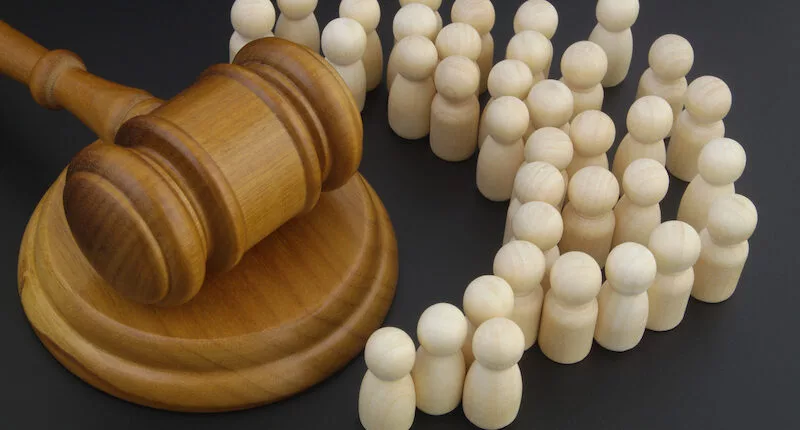How Do Class Action Lawsuits Work?
You may know what class action lawsuits are, but how do they work?
Read further on for the details.
Introduction
Class action suits happen more often than you’d think. Some you hear about, others not so much. You may have even received a piece of mail or email saying that you may meet some of the criteria to become a part of the class action suit.
Over the years, there have been quite a few class action lawsuits that have made news headlines around the country – and the globe. There is a good chance you have heard of them, too, including:
- Tobacco companies were required to pay out over $206 billion and $9 billion per year in perpetuity
- $20 million BP settlement due to the Gulf of Mexico oil spill
- $7.2 billion class action lawsuit due to Enron securities fraud
- The Fen-Phen diet pill was ordered to pay $3.75 billion after it was found to cause fatal heart valve damage
Maybe it was bad products, shady business practices, false advertising, or something else – but, whatever the case, they have found their name and their detrimental actions under a microscope.
And although we may hear about class action lawsuits, how do they work? Let’s take a closer look at how these cases come about.
What is a Class Action Lawsuit?
A class action lawsuit is one that is filed by a large group of people (plaintiffs) against one defendant. Those who file are often claiming that they were injured, deceived, or otherwise negatively impacted due to a company’s product or practices.
The relief received due to a class action lawsuit is then shared amongst everyone.
What Qualifies as a Class Action Lawsuit?
The Federal Rules of Civil Procedure (FRCP), Rule 23 gives a generalized idea of what may be characteristic of a class action lawsuit. These include:
(1) the class is so numerous that joinder of all members is impracticable;
(2) there are questions of law or fact common to the class;
(3) the claims or defenses of the representative parties are typical of the claims or defenses of the class; and
(4) the representative parties will fairly and adequately protect the interests of the class.
How Class Action Lawsuits Work
A class action lawsuit is one that combines many different claims into one suit. In other words, multiple consumers get together to sue one party – usually a large corporation with an extended reach. Because there are multi[pple plaintiffs, these cases tend to be more complex and require governing by a special set of rules.
There are often one or more lead plaintiffs. These are the individuals that have to prove the claim in court. And they represent the group as a whole. In addition, there is one attorney or firm that takes the lead on the case, handling the investigation and preparing the legal documents. It is not uncommon for each of the plaintiffs to have their own attorney representing them as well within the case.
If found in favor of the plaintiff, compensation is either ordered or negotiated and then split between all the plaintiffs. Everyone gets a share.
It is important to note that if you file a personal injury case on your own, you may be rewarded a greater amount. But it may also result in greater legal fees and may lead to a less-than-favorable outcome.
So, why choose to go for a class action lawsuit? There are some benefits of doing so.
What Are the Advantages of Class Action Lawsuits?
One of the biggest advantages of a class action lawsuit is holding the defendant accountable. If each individual files their own lawsuit, there is a potential for the outcomes to be different. One unfavorable outcome can impact other similar cases and make it difficult to hold the party responsible. But when the class action lawsuit is filed, there is power in numbers. With all the class members banding together to file one lawsuit, the push for justice can be overpowering.
A few additional advantages include:
- The need for only one set of witnesses, one set of experts, one set of pleadings, and so forth.
- The damages for each individual may not be as impactful as the group’s collective damages
- One lawsuit is better for the court and is often the most cost-effective all the way around versus multiple lawsuits
- It levels the playing field. One defendant filing a claim against a large corporation will not lead to a fair set of circumstances.
Can Compensation Be Received with a Class Action Lawsuit?
The idea behind a class action lawsuit is to make the ill practices or products of the defendant known – as well as get compensation for those who were impacted as a result. So, yes – compensation can be received with a class action lawsuit.
Types of Class Action Lawsuits
We have given you some examples of class action lawsuits, but it is important to know that there are different types. They don’t always include a faulty product or misrepresentation. Let’s take a look at different types.
Securities. Like the Enron case, these class action lawsuits include plaintiffs who invested money and were hurt due to investment fraud or a whistleblower.
Consumer. Companies that engage in practices that can scam or harm the consumer, including monopolistic schemes, illegal actions, or fraudulent practices, are included.
Personal injury. This type often includes product liability – when a product offered by a company causes harm to a large number of consumers.
Employment. Those employers who engage in discrimination, hour/wage issues, poor or unsafe working conditions, and the like may be included in these class action cases.
Hiring an Attorney for a Class Action Lawsuit
Whether you have been the victim of an issue that may have potentially impacted many people or you think you may have a claim on a case already being investigated, it is important to seek out legal representation.
Hire an attorney with class action experience and/or experience in the issues of law that your claim is about. Taking on big corporations can be tough – even in a class action situation. Having an attorney can ensure you receive the compensation you deserve.
Are you in search for a certified attorney to represent you?
Let us help you find one today!


